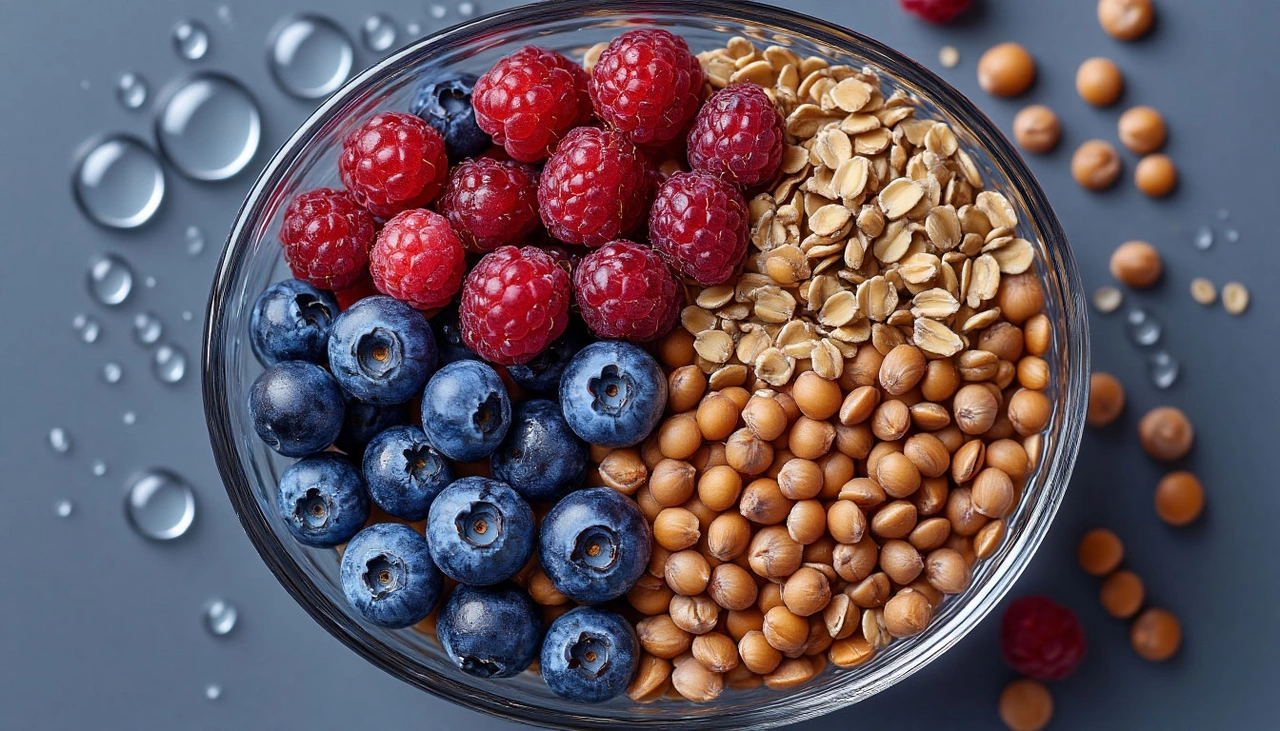🌿 3 Key Nutrients for Smooth Digestion
Poor digestion can easily throw off your entire day — from that post-lunch bloating to discomfort that ruins your evening plans. But digestion isn't just about comfort — it directly affects your brain health, stress levels, immunity, and even emotional balance (did you know 95% of serotonin is produced in the gut?). 🧠💚
To keep your digestion in top form, it's important to nourish your body with the right foods and the right nutrients. Let’s take a closer look at three powerful allies of your digestive system — and how to incorporate them into your lifestyle.
🧪 Digestive Enzymes: Your First Line of Gut Defense

Digestion begins the moment you start chewing — and that’s when digestive enzymes kick into action. These biological catalysts break down your meals into absorbable nutrients, preparing them for smooth transportation through your gut.
There are three primary types of enzymes:
- Amylase: Breaks down complex carbohydrates.
- Lipase: Helps digest fats.
- Protease: Processes proteins into amino acids.
While your body naturally produces these enzymes (in the pancreas, stomach, and small intestine), many people struggle with enzyme insufficiency. This can lead to bloating, gas, indigestion, or even nutrient deficiencies.
You can increase natural enzyme intake through foods like:
- Fresh pineapple
- Raw honey
- Avocados
- Fermented vegetables
- Ginger
💊 For those needing extra help, digestive enzyme supplements are a convenient option — especially after heavy or complex meals.
🌾 Fiber: The Silent Hero of the Gut

It may not sound glamorous, but fiber is essential for regularity and long-term digestive health. Sadly, up to 95% of adults don't consume enough fiber daily — a major factor behind constipation or unpredictable bowel movements.
Fiber serves several roles:
- Adds bulk to stool.
- Helps stool retain moisture.
- Regulates the speed of digestion.
An ideal daily intake is around 25g for women and 30–38g for men. Without sufficient fiber, food may move too slowly or too quickly through the gut, disrupting the absorption of nutrients.
To boost your fiber intake naturally, eat:
- Whole grain breads and pastas
- Raspberries, green peas, black beans
- A handful of almonds
And of course, fiber supplements (especially soluble ones) can be a practical backup when diet alone falls short.
🦠 Probiotics: The Good Bacteria You Need

Probiotics are beneficial microorganisms that support a balanced gut microbiome. A strong microbiome doesn’t just aid digestion — it also strengthens your immune system, which is deeply rooted in the gut (over 70% of immune cells live there!).
Healthy probiotics:
- Aid in nutrient absorption
- Keep harmful bacteria in check
- Contribute to mood regulation and inflammation control
Natural sources of probiotics include:
- Kimchi, kefir, and yogurt
- Sauerkraut and sourdough bread
- Cheeses like feta, cheddar, or gouda (but avoid pasteurized versions)
👩⚕️ If dairy or fermented foods are a challenge for your digestion, probiotic supplements offer an easy alternative — just be sure to choose a formula with multiple strains for broader support.
Close